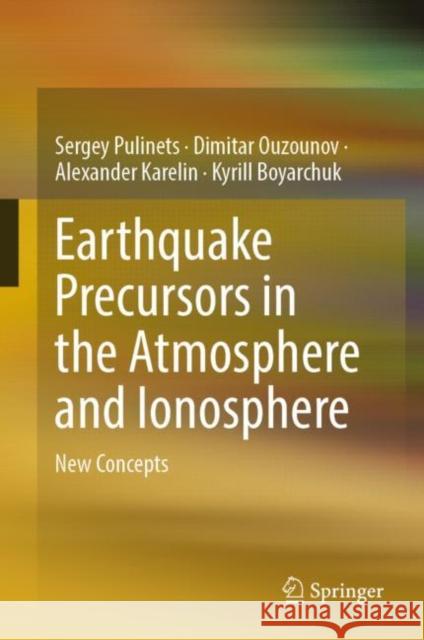Earthquake Precursors in the Atmosphere and Ionosphere: New Concepts » książka
Earthquake Precursors in the Atmosphere and Ionosphere: New Concepts
ISBN-13: 9789402421705 / Angielski / Twarda / 2023 / 294 str.
This book discusses how the increased emanation of radon and other gases from the Earth’s crust in the vicinity of active tectonic faults triggers a chain of physical processes and chemical reactions in the atmospheric boundary layer and the Earth’s ionosphere over an earthquake area several days/hours before strong seismic shocks occur. It presents the two main concepts involved in this mechanism: atmosphere ionization and the global electric circuit. The Lithosphere-Atmosphere-Ionosphere Coupling (LAIC) concept is strongly supported by experimental data showing the atmospheric and ionospheric precursors for major recent earthquakes including 2004 Sumatra; 2008 Sichuan, China; 2011 Tohoku, Japan; and 2015 Nepal. The book not only addresses the theoretical considerations but also includes information on experimental techniques used for precursor observations based on the space-borne systems. Providing practical methods of precursor identification and interpretation, it is an excellent textbook for graduate courses in geophysics, earthquake science, atmospheric physics and remote sensing. Moreover, it offers a wealth of information for scientists and experts from governmental and international agencies working in the fields of natural-disaster mitigation, response and recovery.
This book discusses how the increased emanation of radon and other gases from the Earth’s crust in the vicinity of active tectonic faults triggers a chain of physical processes and chemical reactions in the atmospheric boundary layer and the Earth’s ionosphere over an earthquake area several days/hours before strong seismic shocks occur. It presents the two main concepts involved in this mechanism: atmosphere ionization and the global electric circuit. The Lithosphere-Atmosphere-Ionosphere Coupling (LAIC) concept is strongly supported by experimental data showing the atmospheric and ionospheric precursors for major recent earthquakes including 2004 Sumatra; 2008 Sichuan, China; 2011 Tohoku, Japan; and 2015 Nepal. The book not only addresses the theoretical considerations but also includes information on experimental techniques used for precursor observations based on the space-borne systems. Providing practical methods of precursor identification and interpretation, it is an excellent textbook for graduate courses in geophysics, earthquake science, atmospheric physics and remote sensing. Moreover, it offers a wealth of information for scientists and experts from governmental and international agencies working in the fields of natural-disaster mitigation, response and recovery.











